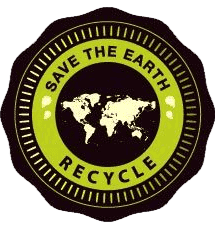Donating your old clothes or other possessions to charities and businesses like Goodwill can be a great way to declutter, all while minimizing the amount that you have to actually throw away. But while it is effective, there are some things that you shouldn’t donate.
Not only can bad donations become a hassle for the staff to manage, but they can actually cost them money and time that they can’t get back. Even if you have good intentions, you can cause major problems with their donation system that will take them a while to fix.
Here are some things to understand about your donations, whether they are going to Goodwill or another group entirely.
Birmingham’s township administration team works hard to keep the area up to code and it’s residents adhering to Chester County laws and regulations.
Broken Items
It goes without saying that unusable electronics shouldn’t go to Goodwill, but you really need to consider the amount of repair involved. A chair that is flimsy in one leg might still be usable, but the risk of it collapsing could mean that it is not suitable as a donation item.
The same goes for a lot of similar items that might need repairs. Goodwill (and most other donation groups) are not going to have the time or manpower to repair every single item. They may not even have the skills or tools necessary to make those repairs in the first place.
Always check clothing for rips and tears and test appliances to make sure that they function properly. You want to be sure that every item works as intended – if you want to repair them, you can try, but never donate anything in a broken state.
Unsafe Items
Some items will simply be unsafe, no matter what they are. There are many cases where an old appliance might have been recalled or may actually no longer comply with the country’s current safety standards. If this happens, then the item shouldn’t be donated.
For example, you might want to look out if you are donating old toys or child and baby-related items in general. They have much higher safety standards, meaning that it is very likely that a lot of them will end up recalled due to issues with small parts or particular materials.
You can check the recall status of most items online, even if the original company that made them has gone out of business, so be sure to double-check before donating anything. This could put people at unnecessary risk and make it harder for the donation to be processed properly.
Fireworks and Ammunition
This should be fairly obvious to most people, but you should never donate explosives, ammunition, or weapons to Goodwill. Not only are these hazardous, but there are multiple legal routes to dispose of them instead, all without putting people in a lot of danger for no real reason.
Ammunition and weapons should be surrendered, sold, or otherwise legally given away to somebody that has the authority and license to handle such a process. Hunting items like knives and bows can often be sold directly.
Fireworks should be soaked, wrapped up in a safe material, and thrown away normally. Remember that this includes actual explosives, like old hand grenades kept as war souvenirs or anything that could function as a genuine bomb – never donate anything that might blow up for obvious reasons.
Chemicals
Chemicals, ranging from paint to major household detergents and cleaning options, shouldn’t be donated. They can be a huge hazard and might even put the staff in direct danger when they receive the donations, so you should always dispose of them carefully and follow any instructions on the packaging or container.
Remember to not pour them directly into the drains unless you are getting rid of a chemical that is meant to flow in there anyway. Paint should be donated to dedicated paint groups, used up, or disposed of correctly. Gasoline should be used up whenever possible. Look up each specific chemical to figure out how you should dispose of it safely.
Debris and Scrap Materials
Any spare materials you might have gotten from construction, renovation, or DIY work should be donated elsewhere rather than to normal donation sites. This is because they are usually impossible to re-sell under normal circumstances and are not suited for a regular shop environment.
If you can’t donate them elsewhere, consider contacting local independent building suppliers to recycle them instead, or even use them somewhere else in your house. If you want to move them quickly, then you could use one of our dumpster rentals to speed things up dramatically.
Large Items
Anything that is too large can create major problems for the group that you are donating to. Kitchen appliances, outdoor play equipment like swing sets, and basically any other large furniture type can become an issue unless you have already arranged the donation ahead of time, and it has been agreed.
There are dedicated places to drop off your larger items, and you can always break them down into their component parts and recycle them if needed. Large things are hard to move, though, so you might have to rely on one of our dumpster rentals to get them to a recycling location easily.
It is always important to consider the amount of time and effort involved in moving the donation. If it takes you a lot of time to get it out of your house and into your car, then it will be even harder for Goodwill to do anything with it. Do not assume that they can handle large items any better than you can.
